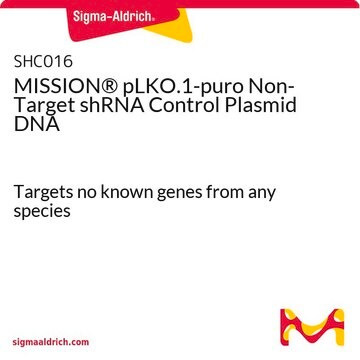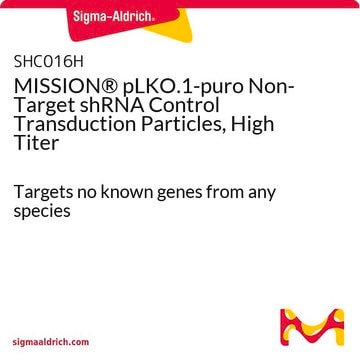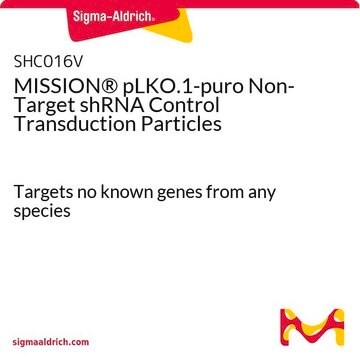SHC001
MISSION® pLKO.1-puro Empty Vector Control Plasmid DNA
Contains no shRNA insert
Synonym(s):
MISSION® Control Vectors
About This Item
Recommended Products
product line
MISSION®
concentration
500 ng/μL in TE buffer; DNA (10μg of plasmid DNA)
shipped in
dry ice
storage temp.
−20°C
Looking for similar products? Visit Product Comparison Guide
General description
Application
Legal Information
recommended
Storage Class Code
12 - Non Combustible Liquids
WGK
WGK 1
Flash Point(F)
Not applicable
Flash Point(C)
Not applicable
Certificates of Analysis (COA)
Search for Certificates of Analysis (COA) by entering the products Lot/Batch Number. Lot and Batch Numbers can be found on a product’s label following the words ‘Lot’ or ‘Batch’.
Already Own This Product?
Find documentation for the products that you have recently purchased in the Document Library.
Customers Also Viewed
Articles
When shRNA is delivered using lentiviral vectors, the sequence encoding the shRNA is integrated into the genome and the knockdown effect is passed on to daughter cells, continuing gene silencing.
When shRNA is delivered using lentiviral vectors, the sequence encoding the shRNA is integrated into the genome and the knockdown effect is passed on to daughter cells, continuing gene silencing.
When shRNA is delivered using lentiviral vectors, the sequence encoding the shRNA is integrated into the genome and the knockdown effect is passed on to daughter cells, continuing gene silencing.
When shRNA is delivered using lentiviral vectors, the sequence encoding the shRNA is integrated into the genome and the knockdown effect is passed on to daughter cells, continuing gene silencing.
Our team of scientists has experience in all areas of research including Life Science, Material Science, Chemical Synthesis, Chromatography, Analytical and many others.
Contact Technical Service